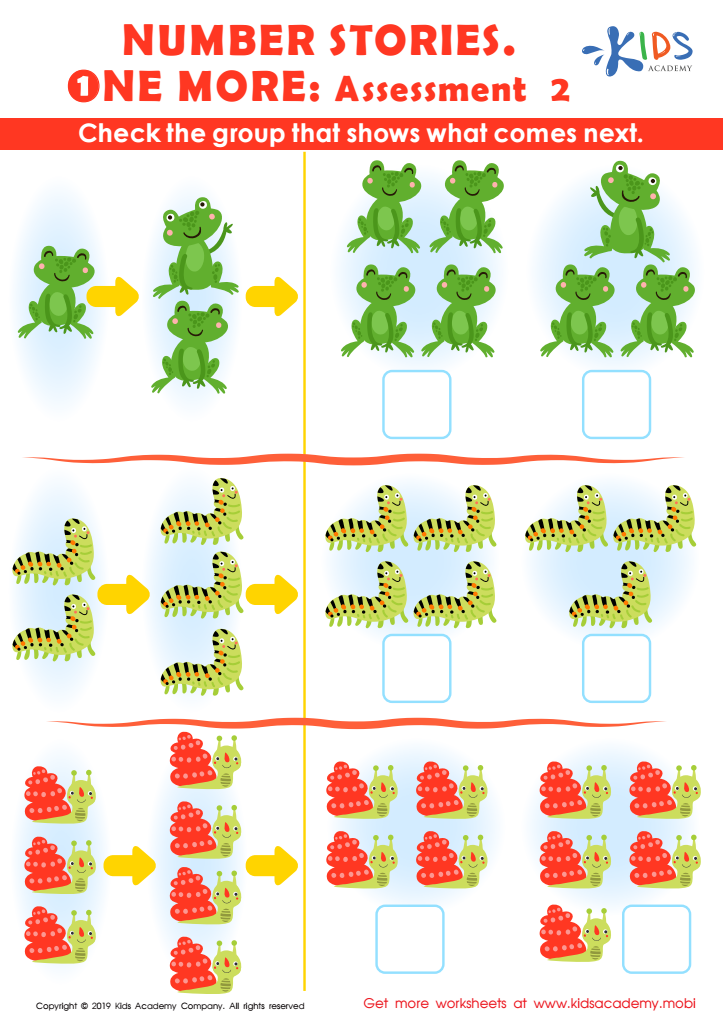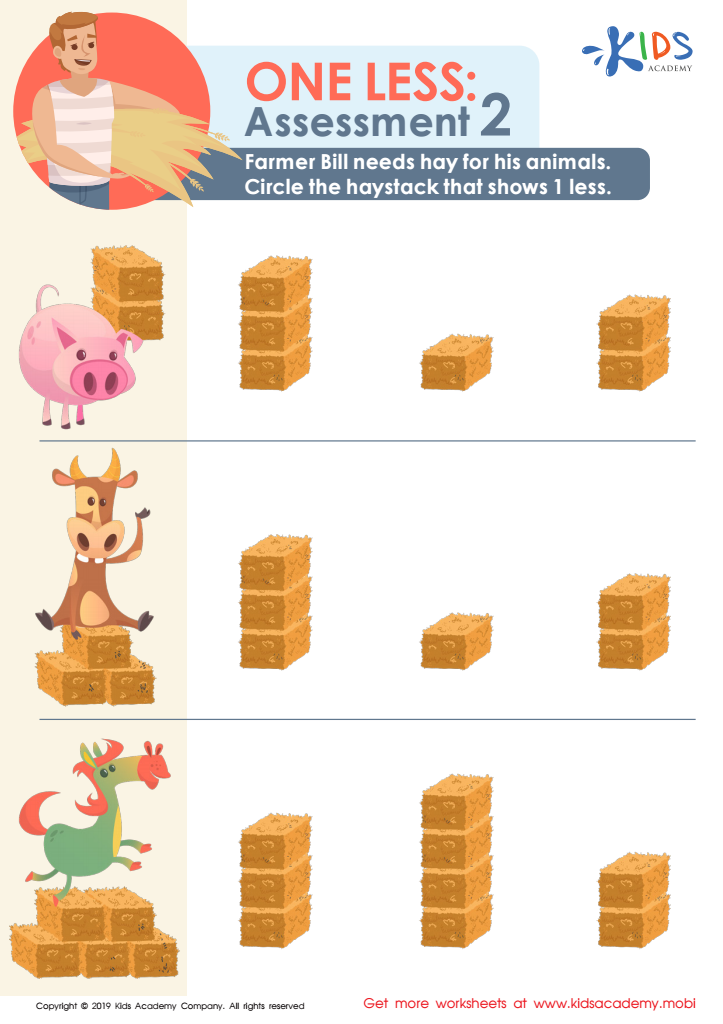Counting worksheets activities for 5-Year-Olds
2 filtered results
-
From - To


Number Stories One More – Assessment 2 Worksheet


One Less: Assessment 2 Worksheet
Counting worksheets activities stand as a foundational pillar in the journey of learning mathematics, particularly for young learners. These activities are not just about learning to recite numbers in order but encompass a broad spectrum of benefits that contribute significantly to a child's cognitive and academic growth.
Firstly, counting worksheets activities foster number recognition and numerical ordering. By engaging with these exercises, children learn to associate numeric symbols with their corresponding quantities, a crucial skill for their future mathematical endeavors. This early exposure helps demystify numbers, making them more approachable and less intimidating for young minds.
Furthermore, these worksheets offer a structured way to practice and reinforce counting skills. Repetition is key in the learning process, and through repeated exposure to counting exercises, children cement their understanding of numbers and their sequences. This repetitive practice boosts confidence and proficiency in counting, laying a solid foundation for more complex mathematical concepts like addition and subtraction.
Counting worksheets activities also enhance fine motor skills and hand-eye coordination. As children trace numbers, circle amounts, or connect dots, they refine their motor control and dexterity. This physical interaction with numbers through writing and drawing embeds numerical knowledge more deeply than passive learning methods.
Moreover, these activities encourage logical thinking and problem-solving skills. Many counting worksheets incorporate puzzles or require children to count objects and match them to the correct numeral. This challenges learners to apply their counting skills in various contexts, fostering cognitive flexibility and analytical thinking.
Lastly, counting worksheets are adaptable to different learning styles and paces. They can be used in a classroom setting, for homeschooling, or as supplementary material for practice at home. This versatility ensures that every child, regardless of their learning environment, has access to quality resources for developing their counting abilities.
In summary, counting worksheets activities are an invaluable tool in early education. They not only make learning numbers fun and engaging but also equip children with essential skills that serve them well beyond their initial mathematical explorations.
 Assign to the classroom
Assign to the classroom












